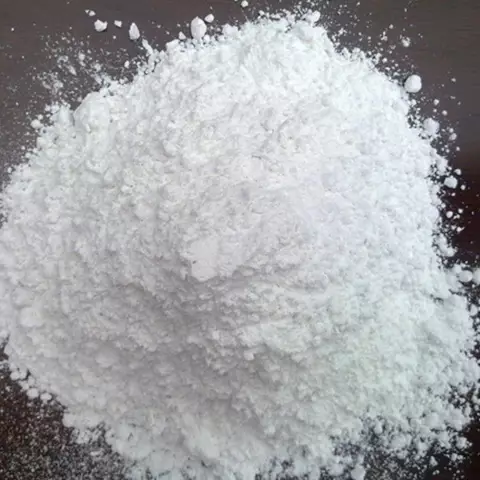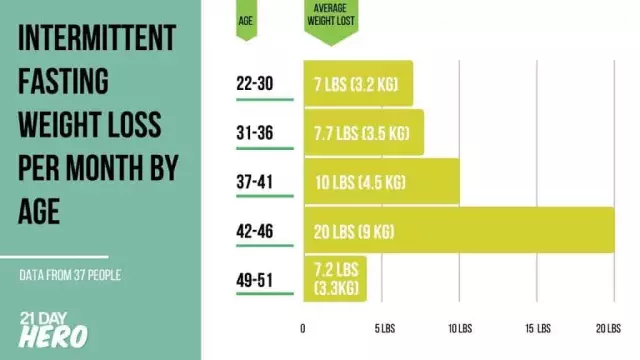- Author Rachel Wainwright wainwright@abchealthonline.com.
- Public 2023-12-15 07:39.
- Last modified 2025-11-02 20:14.
Benefits and harms of donating blood: 12 misconceptions about donation
Blood transfusion has almost a century of history. Despite the fact that this procedure is quite familiar to many people, the process of donating blood itself is still surrounded by numerous myths. Today we set out to debunk the most common of them.

Source: depositphotos.com
Donating blood is harmful to health
The amount of blood circulating in the body of an adult is on average 4000 ml. It has been proven that the periodic loss of 12% of this volume not only does not have a negative effect on health, but also works as a kind of training that activates hematopoiesis and stimulates resistance to stress.
The volume of a single donation of blood does not exceed 500 ml (of which about 40 ml is taken for the purpose of testing). The body quickly compensates for blood loss without any negative consequences.
Donating blood is painful and tiring
Modern donor centers are equipped with everything necessary for a person donating blood to feel comfortable. The donor's unpleasant sensations are reduced to instant pain at the moment of needle insertion. The further procedure is absolutely painless.
Donating whole blood takes about a quarter of an hour. After its completion, the donor may experience slight fatigue, therefore, on the day of the procedure, it is not recommended to engage in heavy physical labor or go on a long trip. The donation of blood components (plasma, platelets or erythrocytes) can take up to one and a half hours.
There is a risk of donor infection
Many people believe that the donor is at risk of getting one of the dangerous infections transmitted by blood (for example, hepatitis C virus or HIV). At present, this is absolutely out of the question: only disposable instruments and devices are used for blood sampling, which are unpacked in the presence of the donor, and after the procedure they are immediately disposed of.
The need for donor blood is low
Blood transfusions are needed by patients undergoing complex surgical operations, women in labor with complicated childbirth, people with severe injuries or burns. Donated blood and its components are used in the treatment of leukemia and other oncological diseases. There are artificial blood and plasma substitutes, but their use has a number of contraindications, since sometimes it leads to negative side effects.
To fully provide the health care system with the required amount of blood, donors should be 40-50 people out of 1000. In some European countries this ratio has been achieved, but in Russia this figure is still significantly below the norm.
According to statistics, every third person on our planet needs a blood or plasma transfusion at least once in his life. At the same time, the blood of absolutely all groups is in demand, and not only rare ones, as is sometimes commonly believed.
Anyone can become a donor
This is far from the case. In Russia, you cannot become a donor:
- under the age of 18 or over 60;
- having a body weight of less than 50 kg;
- being infected with hepatitis, human immunodeficiency virus or tuberculosis;
- having any violations of the composition of the blood or diseases of the blood (hematopoietic organs);
- suffering from an oncological disease.
Temporary restrictions on blood donation apply:
- on pregnant women (blood will be taken no earlier than a year after childbirth);
- on nursing mothers (they can become donors three months after the end of lactation);
- for women during menstruation (blood donation is allowed at least a week before its start or a week after it ends);
- on people who have had flu or SARS less than a month ago;
- for patients who have undergone dental surgery (at least ten days must pass);
- on people who were treated with acupuncture less than a year ago, or who got a tattoo (piercing) of any part of the body;
- for patients who have recently undergone vaccination (the period that elapsed before donating blood depends on the type of vaccine and ranges from ten days to a year).
In addition, a withdrawal from donation can be obtained if the tests on the day of the procedure show the presence of an inflammatory process or traces of alcohol in the body, an increased body temperature, or if there are serious deviations from normal blood pressure indicators. Men can donate blood no more than five times, and women four times a year.
Donating blood for transfusion involves a responsible attitude. The donor must give up alcohol two days before the procedure. You should refrain from smoking for at least an hour before taking blood. Three days before the procedure, you must stop taking medications that reduce blood clotting rates (including aspirin and pain relievers).
Donor must eat high-calorie foods before and after the procedure
One day before donating blood, you must not eat fatty, dairy, meat, eggs, smoked meats, chocolate, bananas, canned food and fast food.
It is important that the future donor does not make mistakes that can negatively affect his health. It is better to donate blood in the morning. Before the procedure, you need to sleep well, have breakfast, giving preference to porridge or pastries and sweet tea. After donating blood, you should eat a balanced diet (if possible at least five times a day) and remember to drink plenty of fluids to replace the blood loss.
Blood donation procedure provokes weight gain
Donation itself (including regular donation) does not in any way affect body weight. The risk of getting fat is for those people who, having misunderstood the recommendations for organizing nutrition, begin to intensively consume high-calorie foods for donating blood and cannot stop in time.
Donation is bad for your appearance
Some women do not dare to donate blood, believing that it will negatively affect the complexion and skin elasticity. In fact, regular donation activates the work of hematopoietic organs, makes the blood renew itself faster, and has a beneficial effect on the functioning of the immune, cardiovascular and digestive systems.
Donors, as a rule, do not have problems with skin tone and complexion. They are cheerful, fit, active and positive.
Regular donation is addictive
Addiction in this case can only be said in the sense of the increased resistance of the body to various stresses, diseases and negative effects of the external environment. Thus, regular donation of blood teaches the body to quickly replenish blood loss, which can play a positive role in the event of injury or illness, from which no one is immune.
It is clinically proven that donation reduces the risk of developing cardiovascular pathologies. Some men note that regular blood donation has a positive effect on potency.
For a successful blood transfusion, the donor and recipient must be of the same nationality
The statement has nothing to do with reality. The compatibility of the donor and recipient (the person to whom the blood is transfused) depends solely on the composition of the blood, that is, the presence or absence of certain proteins in it. For transfusion, blood group compatibility (AB0 system) and Rh factor is important. These indicators are almost equally distributed among different races and ethnic groups.
With a suitable protein composition, the donor's blood can be transfused to the recipient regardless of gender, age or nationality.

Source: depositphotos.com
The donor's personality traits can be transferred to the recipient
Prejudice has very ancient roots. It is consonant with the ideas of primitive people that by eating the organs of the enemy, one can acquire his strength, courage, intelligence and other wonderful qualities. A similar misconception existed in the Middle Ages, when blood was considered the carrier of a part of a person's soul.
In fact, a blood transfusion does not add any personality or ability to the donor to the recipient. It can only aggravate health problems if the unscrupulous donor allowed himself to donate blood without giving up his bad habits. The reason here is not at all in the transmission of information encrypted in the blood, but in the fact that the decomposition products of nicotine, alcohol and other toxins that can cause harm to health can enter the recipient's bloodstream. That is why the donor must be very responsible and the medical staff must be attentive.
Church considers donation unacceptable
Donation is endorsed by major denominations as an act of self-sacrifice and life-saving action. The adherents of some sects, who refuse to receive blood transfusions and do not allow their children to undergo the procedure, make a huge mistake, which is often fatal. Many authoritative representatives of Orthodox Christians consider this to be a direct violation of the commandment "Thou shalt not kill."
Stocks of blood and its components are necessary to save people, and the donation procedure itself is painless, safe and even beneficial to health. There is no denying the positive psychological effect of donation: the consciousness that you are doing a disinterested and noble deed increases self-esteem. In the absence of contraindications, donation is welcome.
YouTube video related to the article:

Maria Kulkes Medical journalist About the author
Education: First Moscow State Medical University named after I. M. Sechenov, specialty "General Medicine".
Found a mistake in the text? Select it and press Ctrl + Enter.






